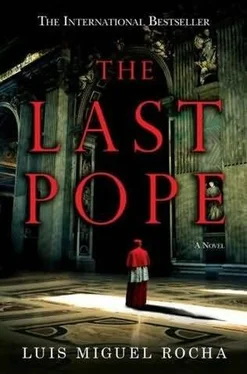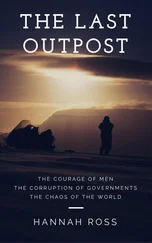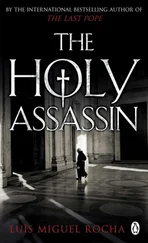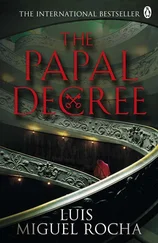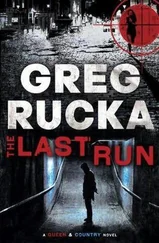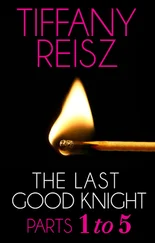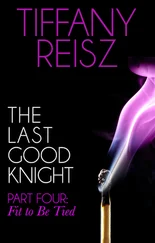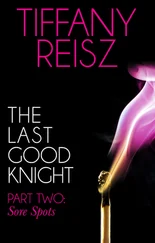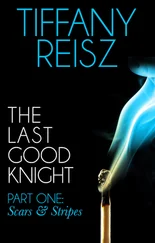That was in 1990, but it felt like yesterday. Now there was a different pope, a German who had succeeded the Pole. He hoped he would live to enjoy the same opportunity, the same honor and privilege to kiss the ring of the new pope, and have a few minutes of private conversation with His Holiness.
There was no reason to think that such an event could happen, not only because of his relentlessly advancing age, but also because these were exceptionally dark times, too hard to analyze and understand. His beloved Church was threatened by unfathomable dangers. Impure forces attacked the very heart of the holy institution, aided by weak-willed members ruled by the temptations of money and power, members who accepted no limitations on their actions.
Quite recently he received a package from his beloved brother in Christ, Monsignor Firenzi. It contained information of such importance that it stunned him. There were papers of John Paul I with astounding revelations, written in His Holiness’s own hand. People who up to now had enjoyed positions of high standing and respect turned out to be false men of God who used their influence for personal gain. Sinners, even murderers, concealed themselves beneath a habit.
Monsignor Firenzi’s instructions were clear: for him to zealously guard the contents of the package, and to transmit its location using extremely secure channels. He had done that, even sending him the key to the hiding place where the papers were stored.
Firenzi had called him a few days ago. He was very worried. He said he didn’t have much time left and asked him for details concerning where the package was hidden, and the man now heading home in a yellow cab had explained everything to him. Firenzi had spoken as if that would be his last conversation. His farewell message was “Keep your eyes wide open and be very careful.” He had heard nothing about Firenzi since then, and he knew that Firenzi was no longer among the living. He could feel it. It was like a priest’s implicit sixth sense. For him, being a priest meant not only delivering the word of God but also perceiving the messages being sent from above. He always knew how to decipher those messages. He could interpret the warning of a plate breaking, a dog howling, the unexpected stopping of a car. And he was sure he knew the moment that Firenzi died. He was saying his morning prayers, kneeling at the small altar he had installed in his apartment, to say Mass for friends and neighbors and the faithful who would visit him. The candle went out. The flame of the large candle, in the candelabrum he always kept lit on the left side of the altar, went out at the exact moment that he was praying for his friend the monsignor. He concentrated even harder, praying for God to rectify the situation and give Firenzi another chance, but all in vain. He couldn’t manage to relight the candle that day. It sputtered and died, as if someone were constantly blowing on it. The next day, having accepted divine will, he asked the Lord to care for his dear friend’s soul. “Thy will be done.” And the candle readily allowed him to relight it.
Though he knew that Firenzi died because of the papers, he still couldn’t know whether his own involvement in the matter would be discovered by whoever was trying to get them. They would probably end up locating him, but God’s designs were unfathomable, and he would readily accept what was to come, for good or ill, with equanimity. He was ready to accept his fate, whatever it might be.
It wasn’t humanly possible to speak with Felipe, from Madrid, or with Pablo Rincón, from Buenos Aires. Both of them received letters from Firenzi, telling them what they should do. But it was too late. Two days after his last prayer for Firenzi, he heard about the death of one and the murder of the other. Still, he remained convinced that God would try to reward those who served his purpose. If it was His will for the papers to remain in his hands, that would come to pass, just as the opposite would occur if that was His intent.
“Keep your eyes wide open,” Firenzi told him the last time they spoke. “Keep your eyes wide open.” But his age no longer allowed him to get involved in adventures or quick escapes. He would continue to conduct his life as before, routinely, normally, saying Masses, attending museums and exhibits, going to the theater. If somebody was looking for him, or already stalking him, then he needed patience. The stalker knew nothing about the location of the papers, nor would he.
The cab had just turned onto Sixth Avenue, and traveled the short distance to the corner of Thirty-eighth Street. The old man paid the driver and got out. When he entered his building, the uniformed doorman wasn’t there to open the door or press the elevator call button.
Where’s Alfred? he wondered. It wasn’t normal to find the front desk empty, nor was it safe for the building to be unguarded. In spite of the doorman’s fancy garb, he wasn’t there just to provide comfort and appearances for the tenants. He also served as a security guard, one who ensured that no one entered uninvited or without authorization. The old priest looked at the front desk again, and tried to open the doormen’s office, but it was locked.
Being a meticulous man, he locked the front door of the building with his key, to prevent any intruder from taking advantage of the doorman’s temporary absence. Tenants who wanted to enter or leave could use their own keys.
Finally, he went into the elevator. He got out on the seventh floor and, going down the hall, reached for the key to his apartment.
He turned the key in the lock, but it wasn’t necessary. He only needed to turn the doorknob.
“Strange,” he said to himself. “I could swear I had turned the key twice.”
Inside, he headed for the telephone and picked up the handset. But he noticed that something was out of order. His copies of the New Testament were out of place, strewn on the floor, in a row, as if marking a path. A path leading into the next room. He put down the phone and followed the trail of books. He was about to enter the room with the altar, but the light was off, and the candles out. He could see nothing. He felt for the switch on the inner wall and turned on the ceiling lamp. On the floor in front of him he saw the doorman, leaning back against the wall, his hands and feet tied, and his head covered with a bag. Then he noticed three individuals, sitting comfortably beside the altar: the Master, the servant, and the assistant.
“Marius Ferris,” the Master said firmly, his cane across his lap.
“Who are you? How did you get in here?” the old man asked the Master, who had called him by name.
“I’ve descended from the heavens to pay you a visit,” he answered jokingly.
“Who, who are you?”
“You can call me J.C.”
VILLOT SEPTEMBER 28, 1978
Villot couldn’t manage to remain calm in his office chair. He got up and started pacing back and forth, cigarette in hand. Once more he would exceed his self-imposed limit. He had vowed to himself countless times that under no circumstances should he smoke more than two packs a day. This poison was killing him slowly. But he couldn’t escape it. The smoke toned down his nervous anxiety. Unfortunately for him, it also helped bring him closer to his eternal reward.
Smoke was billowing from his mouth, but the cardinal was also puffing with rage. He looked for the umpteenth time at the papers on top of the impressive wooden desk. Over the centuries, thousands of documents had moved across this invaluable piece of furniture. Behind this antiquarian’s piece, dozens and dozens of secretaries of state had presided over the destiny of the holy institution. If the desk had the gift of speech, it could reveal secrets, intrigues, plots, and machinations that could chill the spine of even the most stouthearted. In addition, his desk had also accumulated desires, dreams, ambitions, and utopias. There, above all, a perceptive eye would discover badly disguised ambitions to occupy the papal throne. Indeed, what else could one aspire to, after attaining the second-highest spot in the Church hierarchy?
Читать дальше
